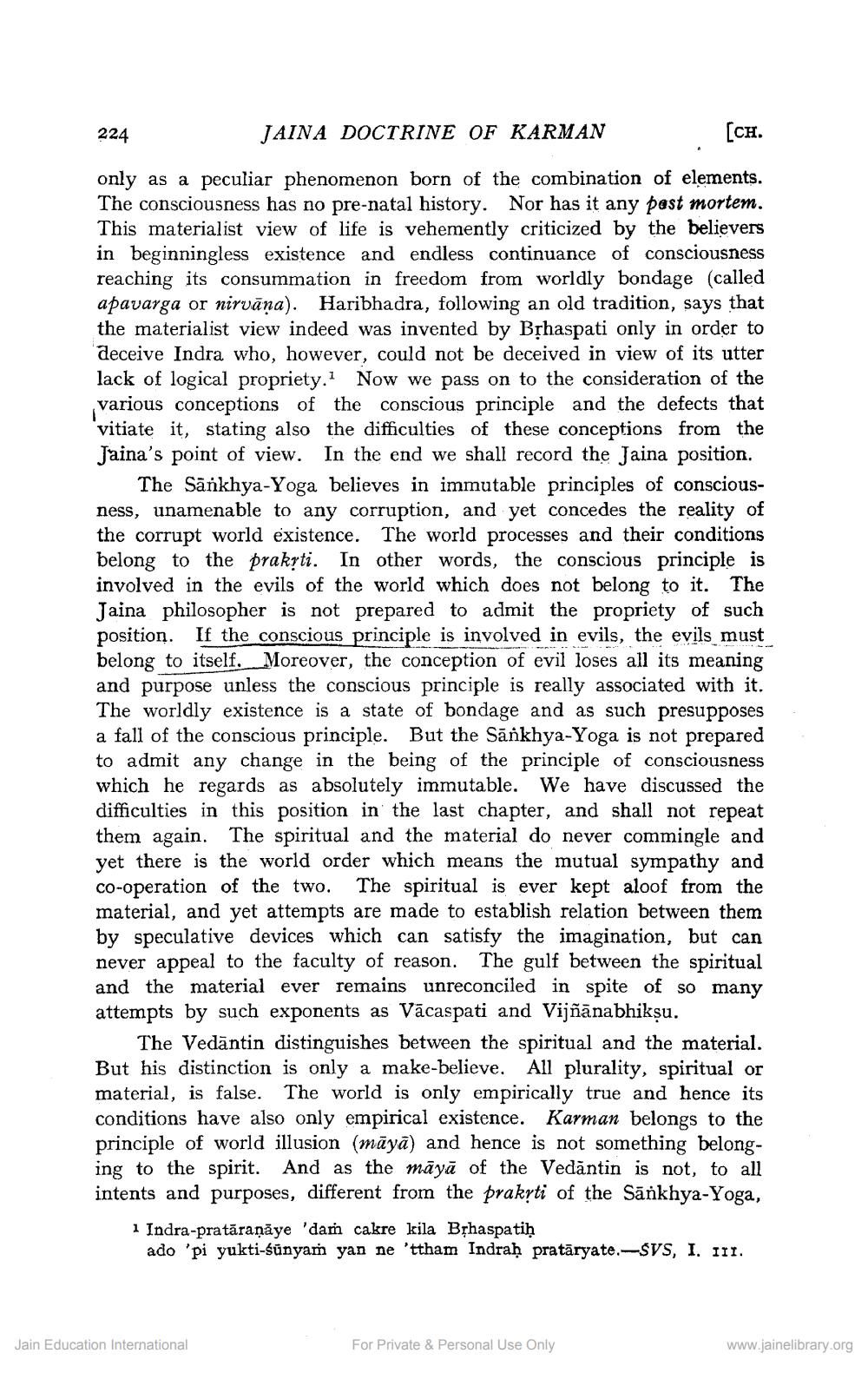________________
224
JAINA DOCTRINE OF KARMAN
[CH.
only as a peculiar phenomenon born of the combination of elements. The consciousness has no pre-natal history. Nor has it any post mortem. This materialist view of life is vehemently criticized by the believers in beginningless existence and endless continuance of consciousness reaching its consummation in freedom from worldly bondage (called apavarga or nirvana). Haribhadra, following an old tradition, says that the materialist view indeed was invented by BỊhaspati only in order to deceive Indra who, however, could not be deceived in view of its utter lack of logical propriety. Now we pass on to the consideration of the various conceptions of the conscious principle and the defects that vitiate it, stating also the difficulties of these conceptions from the Jaina's point of view. In the end we shall record the Jaina position.
The Sānkhya-Yoga believes in immutable principles of consciousness, unamenable to any corruption, and yet concedes the reality of the corrupt world existence. The world processes and their conditions belong to the prakrti. In other words, the conscious principle is involved in the evils of the world which does not belong to it. The Jaina philosopher is not prepared to admit the propriety of such position. If the conscious principle is involved in evils, the evils must belong to itself. Moreover, the conception of evil loses all its meaning
nd purpose unless the conscious principle is really associated with it. The worldly existence is a state of bondage and as such presupposes a fall of the conscious principle. But the Sānkhya-Yoga is not prepared to admit any change in the being of the principle of consciousness which he regards as absolutely immutable. We have discussed the difficulties in this position in the last chapter, and shall not repeat them again. The spiritual and the material do never commingle and yet there is the world order which means the mutual sympathy and co-operation of the two. The spiritual is ever kept aloof from the material, and yet attempts are made to establish relation between them by speculative devices which can satisfy the imagination, but can never appeal to the faculty of reason. The gulf between the spiritual and the material ever remains unreconciled in spite of so many attempts by such exponents as Vācaspati and Vijñānabhikṣu.
The Vedāntin distinguishes between the spiritual and the material. But his distinction is only a make-believe. All plurality, spiritual or material, is false. The world is only empirically true and hence its conditions have also only empirical existence. Karman belongs to the principle of world illusion (māyā) and hence is not something belonging to the spirit. And as the māyā of the Vedāntin is not, to all intents and purposes, different from the prakyti of the Sānkhya-Yoga,
1 Indra-pratāraņāye 'dam cakre kila BỊhaspatiḥ ado 'pi yukti-sünyam yan ne 'ttham Indraḥ pratāryate.--SVS, I. III.
Jain Education International
For Private & Personal Use Only
www.jainelibrary.org




